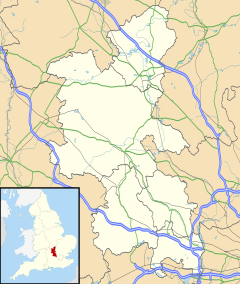Little Kimble
| Great and Little Kimble | |
|---|---|
 Great Kimble Church |
|
| Great and Little Kimble shown within Buckinghamshire | |
| Population | 960 1,026 (2011 Census) |
| OS grid reference | SP824065 |
| Civil parish |
|
| District | |
| Shire county | |
| Region | |
| Country | England |
| Sovereign state | United Kingdom |
| Post town | AYLESBURY |
| Postcode district | HP17 |
| Dialling code | 01296 |
| Police | Thames Valley |
| Fire | Buckinghamshire |
| Ambulance | South Central |
| EU Parliament | South East England |
| UK Parliament | |
Great and Little Kimble is a civil parish in Wycombe district, Buckinghamshire. It is located 5 mi (8.0 km) to the south of Aylesbury. In addition to the villages of Great Kimble and Little Kimble it contains the hamlets of Kimblewick and Marsh, and an area within Great Kimble is called Smokey Row. From the time of the 2011 Census the civil parish is called Great and Little Kimble cum Marsh.
It comprises the ancient ecclesiastical parishes of Great Kimble and Little Kimble and also the medieval Manors which had the same names. The two separate parishes were amalgamated in 1885, but kept their separate churches, St Nicholas for Great Kimble and All Saints for Little Kimble. They fell within the Hundred of Stone, which was originally one of the Three Hundreds of Aylesbury, later amalgamated into Aylesbury Hundred. The parishes lie between Monks Risborough and Ellesborough and, like other parishes on the north side of the Chilterns, were strip parishes, long and narrow, including a section of the scarp and extending into the vale below. In length the combined parish extends for about 4 1⁄4 miles (6.8 km) from near the Bishopstone Road beyond Marsh to the far end of Pulpit Wood near the road from Great Missenden to Chequers but it is only a mile wide at the widest point. The village of Great Kimble lies about 5.5 miles (8.9 kilometres) south of Aylesbury and about 2.5 miles (4.0 kilometres) from Princes Risborough on the A4010 road.
There is a prehistoric hillfort at the summit of Pulpit Hill in Great Kimble. During the Roman occupation of Britain there was a Roman villa at Little Kimble and a tumulus near Great Kimble church is probably a burial mound from the same period. In Norman times a motte and bailey castle was erected at Little Kimble and later developed into a moated site for a medieval dwellinghouse. The present churches of St Nicholas (Great Kimble) and All Saints (Little Kimble) date from the 13th century. It was here that John Hampden refused to pay his ship-money in 1635, one of the incidents which led to the English Civil War.
...
Wikipedia

